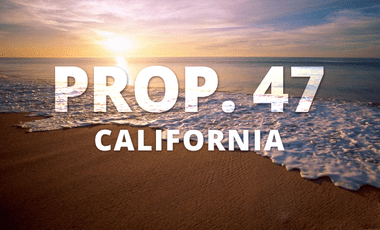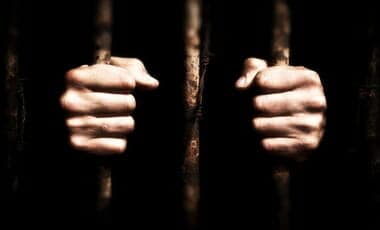CBSN has info before we get to the real newsworthy comments/news sources:
ROCKLIN (CBS/AP) — Perry Lutz says his struggle to survive as a small businessman became a lot harder after California voters reduced theft penalties 1 1/2 years ago.
About a half-dozen times this year, shoplifters have stolen expensive drones or another of the remote-controlled toys he sells in HobbyTown USA, a small shop in Rocklin, northeast of Sacramento. “It’s just pretty much open season,” Lutz said. “They’ll pick the $800 unit and just grab it and run out the door.”
Anything below $950 keeps the crime a misdemeanor — and likely means the thieves face no pursuit and no punishment, say retailers and law enforcement officials. Large retailers including Safeway, Target, Rite Aid and CVS pharmacies say shoplifting increased at least 15 percent, and in some cases, doubled since voters approved Proposition 47 and ended the possibility of charging shoplifting as a felony with the potential for a prison sentence….
- A great article is this one: “CALIFORNIA’S ‘WOKE’ PROP 47 DOOMED CITIES WITH CRIME RINGS AND THEFT“
- And, “WHAT ARE THE RESULTS OF CALIFORNIA’S PROP. 47 HALF A DECADE LATER?“
San Francisco’s no arrest policy has anarchic results. pic.twitter.com/3FqauPHUaM
— Ian Miles Cheong (@stillgray) March 3, 2020
The video was found because of TEXAGS, so a shout-out to that site. NATIONAL REVIEW has a good comment on this:
…The underlying premise of Proposition 47 was to free up funds so the state could focus on violent and serious offenders. Savings would be diverted to school-based prevention and support programs, victim services, and mental-health and drug treatment. Therefore petty thieves, who might be drug addicts, would avoid costly and ultimately detrimental incarceration. The referendum had the support of California Democratic party and the American Civil Liberties Union, and the state’s voters passed it into law in 2014.
What could possibly go wrong?
That question is best asked of the people in California who are robbed and call the police for help. Overall, they’re blindsided by the slow (or non-) response. The surprise and anger they feel is tremendous. Nearly a thousand dollars in stolen property is hardly minor, especially to those who have little to lose. It’s not just the loss of personal possessions they’ll probably never see again that is so distressing, but the ruined trust in the system that they assumed was designed to protect the innocent.
For law enforcement, however, there is little incentive to chase down low-level criminals. Even if the person is escorted to the station, odds are great he’ll be back on the street in an hour or so.
Outrage in these circumstances is apolitical. A liberal Berkeley student studying in a café whose laptop is swiped from a table feels just as violated as the right-leaning visitor to Los Angeles whose luggage is stolen. A struggling small-business owner wonders how long he can withstand the damage done by constant pilfering.
“Every bicycle in our building has been stolen,” says Karen Burns, president of a San Francisco condo association. “I’ve caught so many people stealing packages. They don’t care. They know nothing will happen to them. It’s crazy. It’s horrible. I feel like these people need to go to jail.”
Proposition 47 didn’t stop with theft. The personal use of illegal drugs was also reclassified to a misdemeanor. Although the intent may have been kind (it’s cruel to punish people for having an addiction) and practical (they’ll emerge from prison hardened, and a felony on their record makes it more difficult to reintegrate into society), the downstream impact on the community at large has been disastrous. In San Fransisco, for example, shooting up in public is commonplace, whether it’s on the steps of City Hall, in front of a supermarket, or at the entrance to a children’s playground.
Residents who are experiencing an uptick in so-called low-level crimes in their neighborhoods are baffled by studies indicating otherwise. For example, a December 2017 Center on Criminal and Juvenile Justice report shows property crimes down by an average of 18.1 percent across the state. Those numbers are false, says Michael Rushford, president of the Sacramento-based Criminal Justice Legal Foundation, a nonprofit public-interest law organization: “More, not fewer, of these crimes are being committed, but people aren’t reporting them. In most cases they have to do it online, and they end up not doing it. They don’t believe anything will happen, so don’t see the point. And they’re right.”
In fact, Magnus Lofstrom, a researcher at the Public Policy Institute of California, pointed to a 12 percent jump in larceny-theft (essentially, unlawfully taking someone’s property) in the state immediately after Proposition 47 took effect. “Crime rates always fluctuate, and the data isn’t always accurate,” says Lofstrom.
CertainlySan Franciscans aren’t debating whether or not crime is up. They know it is. In January, Police Chief William Scott acknowledged a 24 percent jump in property crimes from 2016 to 2017. Auto break-ins have soared in every district, and the arrest rate for them is an astonishing 1.6 percent….
(FLASHBACK to Feb, 2017) John and Ken interview Michael Rushford of the Criminal Justice Legal Foundation, a nonprofit, public interest law organization dedicated to improving the administration of criminal justice. Through the failures of California AB 109, prop 47 and prop 57 we all knew would happen but Jerry “MOONBEAM” Brown did not, quite a few violent crimes and the killing of our first defense has happened. (A previous similar upload). But hey, let’s spend billions on a train… effe the police and women.

